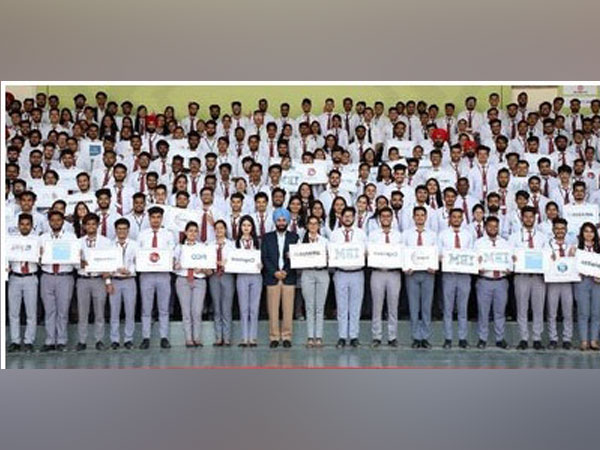~ The global Digital Engineering spend for the BFSI industry for 2020 is USD 38 Bn, and will grow at a CAGR of 18% to reach USD 86Bn by 2025 ~
~ Extensive availability of digital talent, domain knowledge, and a rich ecosystem are the key drivers for increased digital products from India ~
~ Banks need to increasingly focus on building Cloud-based, API-backed, data-focused, AI/ML-driven, and customer-centric products to keep pace with tech/FinTech companies ~
Zinnov, a leading global management and strategy consulting firm, released the findings from its latest study titled, ‘Digital Engineering in BFSI’, today. The study is aimed at enabling business leaders in the Banking, Financial Services, and Insurance (BFSI) industry to analyze transformative trends in the wake of COVID-19 and make informed decisions on their Digital Engineering priorities. Zinnov estimates that the Global BFSI Digital Engineering spend by Z1000 organizations alone is a whopping USD 38Bn , and is expected to grow at a CAGR of 18% to touch USD 86Bn by FY2025.
Banks have traditionally been slow to adopt new technology, given the inherent risk, compliance and regulatory challenges. However, as their customers increasingly embrace digital channels, Tech Giants such as Amazon and Google, and FinTech companies such as Robinhood, are threatening to eat into the market share dominated by the incumbents. These new BFSI entrants are nimble and have a deep focus on improving customer experience by leveraging digital technologies such as AI/ML, Cloud, Automation, etc. These factors have prompted Banking and Financial Services organizations to invest in digitalization of their existing services, a trend which will only increase with time.
Zinnov analysis revealed that while North America leads in the Digital Engineering spend with 50% of the total global spend, APAC region stands second at 26%, followed by Western Europe at 19%. A major portion of this spend is being driven by Retail Banking and Insurance companies that are leveraging technology to optimize operations and enhance the customer experience. This is especially critical in the wake of COVID-19.
Zinnov’s study also revealed that BFSI companies are increasingly channeling their digital investments on technologies such as Data Science, Big Data Analytics, Cloud, Security, AI/ML, and Blockchain. 34% of the total Digital Engineering spend is being allocated towards Data Science & Big Data Analytics alone, as nearly all banks have started leveraging data for better risk profiling and personalizing customer experience. Cloud comes a close second at 31%, signaling a shift in BFSI segment’s earlier reluctance to move workloads to the Cloud. With the COVID-19 pandemic thrusting BFSI companies into the frontline as key agents for stimulus package disbursal, digitalization will become critical.
The study also revealed that new players entering the segment are rapidly upending the status quo. Banks today, are losing customers to FinTech companies and Technology Giants such as Amazon and Google, owing to changing consumption patterns, varying regulatory norms across geographies, better usage of digital technologies, and newer business models. While the Tech Giants are offering multiple payment and lending options, FinTech companies have simplified access to banking products across the banking value chain, thus threatening the incumbents’ market domination.
Skilled digital talent is at the core of digitalization across BFSI industry. Zinnov analysis shows that even though India has the talent to build 75% of the digital offerings, only 30% of all BFSI digital offerings are currently being developed through the India Global Centers of Excellence (GCoEs). These GCoEs are at varying levels of maturity; however, many of them are poised to become “transformation hubs” for their parent organizations if leveraged well. GCoEs are attempting to deliver on this value by taking up a specific set of actions to build internal capabilities, buy expertise through strategic acquisitions, and partner with FinTech companies to gain the right technologies and capabilities.
Speaking about the study, Pari Natarajan, CEO, Zinnov, said, “Companies across the BFSI industry, although slow to adopt digital technologies, are strategically placed to thwart the unrelenting advance of Tech Giants and FinTech companies. BFS GCoEs need to move beyond being global shared services centers and evolve into transformation hubs by establishing innovation hubs, setting up digital Centers of Excellence (COEs), developing intrapreneurial leadership, incubating product management, and engaging actively with the external ecosystem of start-ups, universities, and FinTech companies. Our analysis reveals that nearly 1/8th of the world’s digital talent will be based in India by 2030, which makes India the perfect destination for setting up BFS technology centers.”
“The impact of COVID-19 on the financial fabric is palpable. Banks have the opportunity to be the agents of change by helping customers and corporations receive easy access to credit from government stimulus packages or through loans. Further, cost optimization through automation of horizontal functions, renewed focus on Liquidity and Risk Management, and solidifying core processes will ensure that BFSI companies come out of this crisis with their credibility intact,” he added.
About Zinnov
Founded in 2002, Zinnov is a leading global management and strategy consulting firm, with presence in Santa Clara, Houston, Bangalore, Gurgaon, and Paris. Over the past 18 years, Zinnov has successfully consulted with over 250+ Fortune 500 enterprises and technology companies to develop actionable insights that help them create value – across dimensions of both revenue and optimization. With core expertise in Product Engineering, Digital Transformation, Innovation, and Outsourcing Advisory, Zinnov assists clients by:
• Enabling global companies to develop and optimize a global engineering footprint through center setups, and technology and functional accelerators to achieve higher R&D efficiencies, innovation, and productivity;
• Advising global PE firms in asset shortlisting and target evaluation, commercial due diligence, and value creation;
• Growing revenue for companies’ products and services in newer markets through account intelligence, market entry, and market expansion advisory;
• Structuring and implementing Digital Transformation levers enabled by technologies like AI/ML, Cloud, IOT, and RPA;
• Helping global companies outline and drive their open innovation programs, design and operate accelerator programs, and enable collaboration with start-ups across specific use cases and predefined outcomes.
With their team of experienced consultants, subject matter experts, and research professionals, Zinnov serves clients from across multiple industry verticals including Enterprise Software, BFSI, Healthcare, Automotive, Retail, and Telecom in the US, Europe, Japan, and India.
For more information, visit http://zinnov.com.
Views: 0

